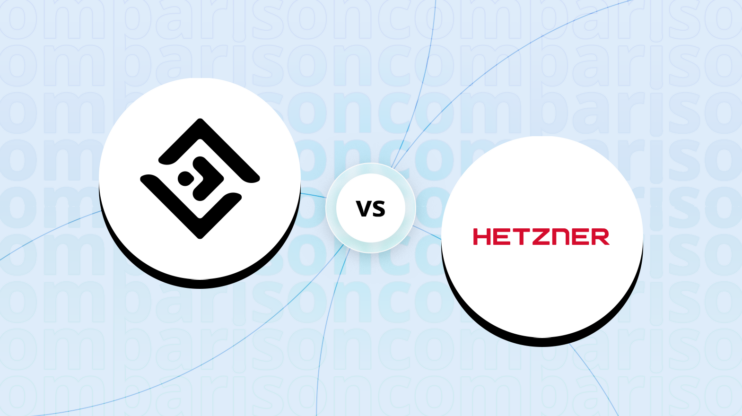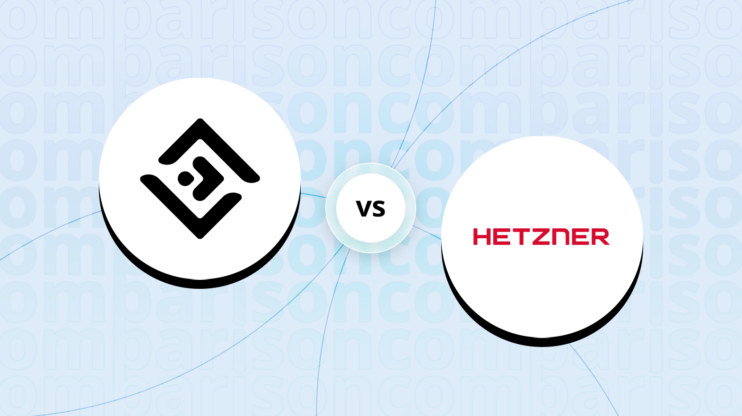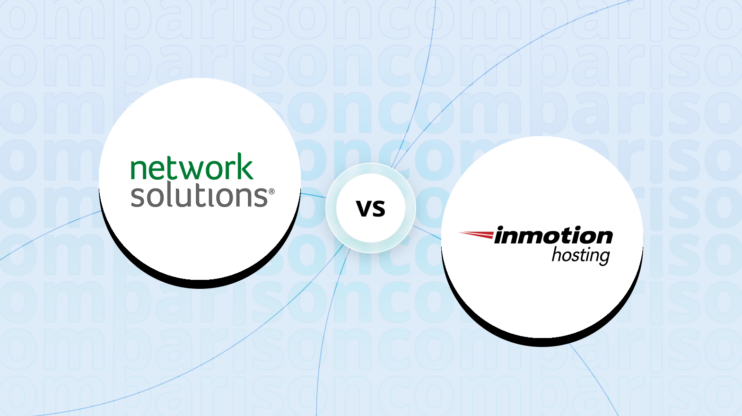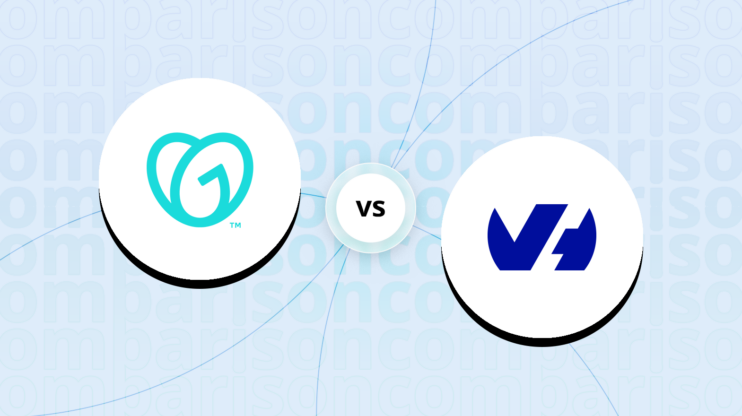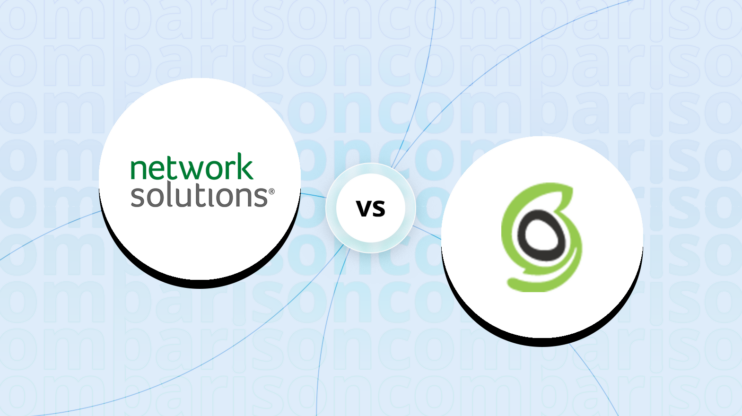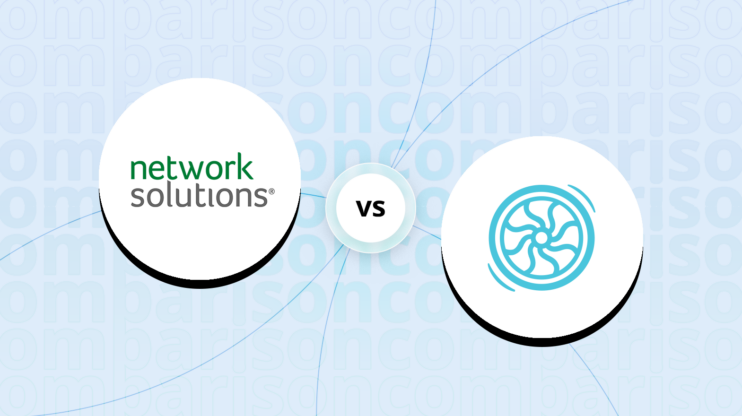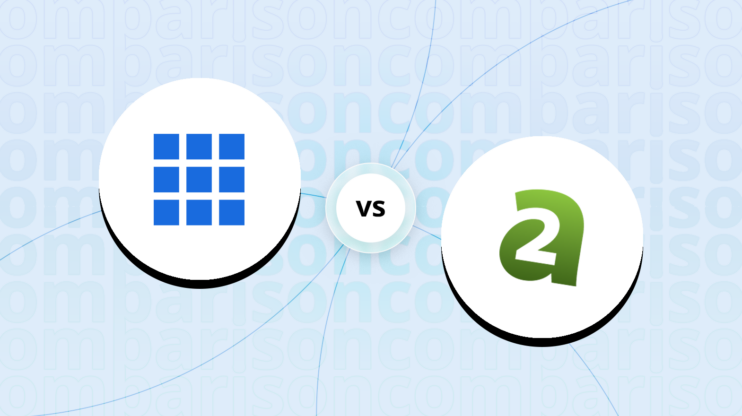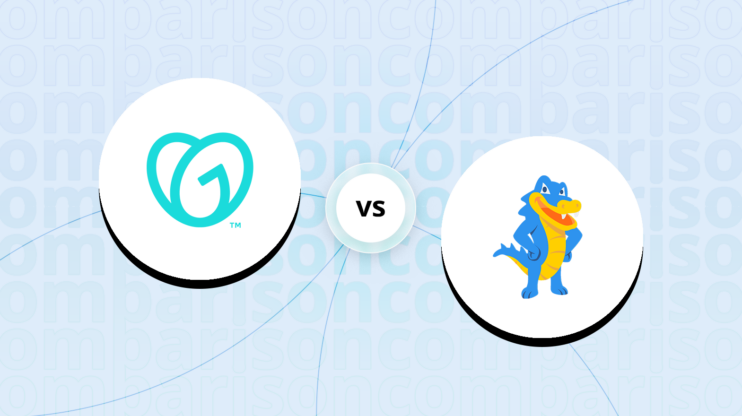Final verdict
Final Verdict
-
Bluehost
(Overall grade: 8.2)
stands out with its exceptional performance, reliability, and a plethora of features tailored for various user groups, including WordPress and ecommerce hosting. The platform’s impressive uptime, SSD storage, and free CDN offer fast and consistent website speeds. Additionally, Bluehost’s ease of use and integrated AI tools make it accessible for beginners, while its extensive support options ensure help is available when needed. However, some users report occasional outages and upselling tactics, which can be frustrating. -
Hetzner
(Overall grade: 7.9)
offers a versatile, cost-effective solution with a strong focus on high performance and security. Its NVMe SSDs, unlimited traffic, and ISO 27001 certified data centers provide a solid hosting environment. Hetzner’s in-house email hosting and robust PHP support are particularly appealing for developers. Although Hetzner lacks some of the extras like a built-in CDN or WordPress-specific hosting, its straightforward pricing and flexible cancellation policies make it a competitive choice for budget-conscious users. The primary drawbacks include a more complex interface and limited customer support options compared to Bluehost.
 Overall grade:8.2 |
 Overall grade:7.9 |
|
|---|---|---|
| Uptime and Availability | 9.0 | 9.0 |
| Hosting Performance | 8.9 | 8.3 |
| Hosting Security | 8.1 | 8.8 |
| Price | 8.1 | 7.9 |
| Hosting Features | 7.0 | 7.5 |
| Ease Of Setup | 8.6 | 8.0 |
| User Management | 8.0 | 7.8 |
| Customer Support | 7.9 | 6.3 |
| User feedback | 3.5/5 | 4.6/5 |
Hosting types offered
Both platforms provide a variety of hosting types, each designed to meet the different needs of users.
 |
 |
|
|---|---|---|
| Shared hosting | ||
| Cloud hosting | ||
| WordPress hosting | ||
| Ecommerce hosting | ||
| VPS hosting | ||
| Dedicated hosting |
Although both offer a variety of hosting plans tailored to different needs, in
certain cases, one platform may prove to be more suitable.
Detailed comparison
Uptime and availability
Evaluates the average uptime statistics, uptime guarantee and overall availability of the hosting
provider
Score Components:
- Uptime percentage (30%): evaluates the uptime statistics in given period of time
- Uptime guarantee (20%): Assesses if the platform offers an uptime guarantee and
whether the actual uptime matches the promised guarantee. - General performance (25%): Evaluates how fast is the average response time and overall
it’s stability. - Responsiveness (10%): Adaptability to different devices and screen sizes.
- Availability (25%): Reflects the total downtime and number of outages.
 9.0
9.0
 9.0
9.0
🏆 Winner Bluehost: Exceptional performance and reliability with near-perfect uptime.

Bluehost demonstrates strong uptime and availability metrics. Its claimed 100% network uptime for cloud hosting and actual tested uptimes ranging from 99.63% to 100% make it a dependable choice. The hosting provider also offers 5% account credits per 30 minutes of network downtime. This, combined with solid performance under load and reasonable server response times, showcases its reliability.

Hetzner Online, while offering a respectable 99.9% uptime guarantee, doesn’t quite hit the same high marks as Bluehost. Though Hetzner’s data centers are well-monitored and it provides free DDoS protection, the company does not offer the same level of uptime as consistently reported by Bluehost. Additionally, Hetzner’s network availability sits at a minimum of 99.9%, which is commendable but slightly lower.
In conclusion, both hosting providers deliver good performance and availability, but Bluehost’s higher and more consistent uptime sets it apart. Its stringent uptime guarantees and ability to handle traffic spikes make it the better option for those prioritizing reliability.
Hosting performance
Score Components:
- Hosting speed (30%): This includes SSD quality, Load times, PageSpeed score ranges,
additional information on website speed, built-in plugins for performance enhancement, available caching
methods, and CPU/RAM options - CDN (20%): Considers whether CDN is available or not, whether it’s free or paid, and
the quality of the CDN service - Available data centers (30%): Evaluates the number of data centers and their locations
globally. - Scalibility (20%): Looks at whether elastic scaling is available, the process required
to scale (manual upgrade vs. automatic scaling), the presence of dedicated servers, and the costs
associated with scaling.
 8.9
8.9
 8.3
8.3
🏆 Winner: Bluehost: For users who prioritize speed and advanced technological infrastructure, Bluehost is more suitable for high-demand websites that require reliable and fast global access.
Bluehost and Hetzner both offer SSD storage and free CDN integration to enhance hosting performance and speed. Bluehost, however, showcases faster load times with a heavyweight theme clocked at 1.69 seconds, compared to Hetzner’s 4.85 seconds. Bluehost operates 11 global data centers, which surpasses Hetzner’s six, potentially offering better local loading speeds and content delivery. Moreover, Bluehost’s technology is more up-to-date, which may contribute to its superior performance.
Website Speed
Bluehost excels in website speed with an LCP time of 872ms, significantly outperforming Hetzner’s 1.8 seconds. Although both fall within the acceptable range of LCP (up to 2.5 seconds is considered good), Bluehost’s website speed is notably better, indicating a more efficient user experience.
Scalability
Both hosting providers offer scalability options tailored to varying needs; however, Bluehost provides a more customized approach with its custom cloud plans where resources can be configured to user requirements. Hetzner also offers a variety of hosting types, including shared and dedicated servers, with tiered pricing to accommodate different user levels.
Hosting security
and regulatory requirements
Score Components:
- Technical security measures (40%): This includes encryption, firewalls, DDoS
protection, secure configurations, server monitoring, access control and availability of security addons
(e.g Sitelock security). - Operational security measures (30%): Encompasses data privacy, backups and data
redundancy. - Compliance and certifications (20%): Adherence to legal and regulatory requirements
(e.g., GDPR, HIPAA) and possession of certifications (e.g., ISO 27001, SOC 2). - Business and reliability (10%): Factors in the provider’s reputation, uptime
guarantees, and customer support.
 8.1
8.1
 8.8
8.8
🏆 Winner
Hetzner Online: Hetzner Online offers superior security measures and operational practices for hosting needs.
Both Bluehost and Hetzner, have notable differences in their approaches to technical and operational
security, as well as in their compliance with regulations.
Technical security measures:
Bluehost provides robust technical security features including free and premium SSL certificates, automated daily backups, DDoS protection, web application firewall, and malware scanning. PHP workers, automated WordPress updates, and traffic encryption further bolster its security profile. Hetzner features free Symantec Basic and Let’s Encrypt SSL certificates, multiple PHP versions (including PHP5, PHP7, PHP8), and extensive PHP extensions. Hetzner’s ISO 27001 certification for its data centers underscores its advanced security infrastructure. DDoS protection and secure data transfer via FTPS/SFTP and SSH access add further layers of security.
Operational security measures:
Operationally, Bluehost employs a suite of measures such as 2-factor authentication, daily backups via Jetpack, and email and file encryption, enhancing user and data security. It also includes proactive malware scanning and automated WordPress updates. Hetzner, on the other hand, extends protections including robust mail security (DKIM, SPF, ClamAV), automated defense mechanisms against common attacks, and 24/7 system monitoring. Hetzner’s operational protocols, such as SSL encryption for administration and web mail access, emphasize secure connections and comprehensive system integrity checks.
Compliance and certifications:
Both hosting providers comply with GDPR but neither is HIPAA compliant, which may be a critical factor for businesses in healthcare. Bluehost is GDPR-compliant, ensuring EU resident data protection, but does not support PCI compliance on shared hosting accounts without a full CDN solution. Its VPS and dedicated servers can achieve PCI compliance with appropriate configurations. Hetzner is also GDPR-compliant, with data centers adhering to strict European data regulations. It has ISO 27001 certification, signifying compliance with international security standards, though specific HIPAA and PCI compliance information is not provided.
 |
 |
|
|---|---|---|
SSL certificate |
Free SSL, Premium SSL |
Symantec Basic, Let’s Encrypt |
Additional security features |
DDoS protection, malware scanning, 2-factor authentication, etc. |
DDoS protection, ClamAV, DKIM, SPF, 24/7 monitoring |
PHP versions |
PHP workers (vCPUs) |
PHP5, PHP7, PHP8, extensive extensions |
GDPR compliance |
Yes |
Yes |
HIPAA compliance |
Not specified |
Not specified |
PCI compliance |
Only for VPS/Dedicated servers |
Not specified |
Hosting features
Score Components:
- Domains (20%): Assesses the availability of a free domain, domain purchase options, and
pricing - Email (15%): Considers if the provider offers full email hosting, or is reselling
third-party service, and if the email is only transactional or not - Website builder (15%): Checks if website builder is available, and it’s user
friendliness and overall the level of customization allowed. - Staging environment (20%): Determines if a staging environment is available, allowing
for testing changes before going live. - FTP & SFTP accounts (10%): Evaluates if and how easily users can access FTP and
SFTP accounts - Git and SSH access (20%): Assess whether Git is integrated into the hosting service and
if SSH access is provided
 7.0
7.0
 7.5
7.5
🏆 Winner Hetzner: Reliable hosting with versatile, cost-effective solutions.
Bluehost and Hetzner both offer a comprehensive range of hosting features, each catering to different needs. Bluehost shines with its integrated AI tools and a free AI site creation feature, making it easy for beginners to set up a website quickly. Additionally, Bluehost includes a free domain for the first year and provides a smooth WordPress hosting experience, often recommended by WordPress.org. Hetzner, on the other hand, provides powerful hosting solutions with exceptional flexibility and robust performance. One standout feature is its substantial NVMe SSD disk space and unlimited traffic. Hetzner also offers advanced SFTP/SSH access, crucial for developers needing secure file transfers.
Both hosting providers offer free SSL certificates, but Bluehost’s inclusion of daily backups for the first year and malware scanning elevates its security offerings. Hetzner supports a wide range of email synchronization protocols and provides a high degree of customization with its support for various PHP versions and extensions. Moreover, Hetzner’s transparent pricing with minimal additional fees and flexible cancellation policies make it a budget-friendly option. The user-friendly konsoleH administration interface from Hetzner adds to the seamless management experience, contrasting with Bluehost’s more chat-based support system, which might appeal to different user preferences.
 |
 |
|
|---|---|---|
Free Domain |
Yes, 1st year |
Yes |
Free SSL |
Yes, 1st year |
Yes |
Email Hosting |
Yes, via Google Workspace |
Yes |
Website Builder |
Yes, Free AI Site Creation |
No |
Staging Environment |
No |
No |
FTP & SFTP Accounts |
Yes |
Yes |
Git and SSH Access |
Yes |
Yes |
Free Backup |
Yes, 1st year |
Yes, daily |
Money Back Guarantee |
Yes |
No |
a location.
As a result in rare cases the features mentioned here can differ from the ones you see on their websites.
Both providers support a range of users from beginners to experts with user-friendly website builders and WordPress staging areas. However, in terms of developer tools, both Bluehost and Hetzner offer robust options including SSH access, support for multiple programming languages, and Git for version control, thus appealing to developers looking for advanced capabilities.
Email services:
Email services at Bluehost include professional email hosting through Google Workspace, which requires additional setup and purchase. Hetzner provides a more robust in-house email solution, supporting SMTP with SSL encryption, email synchronization (EAS, CalDAV, CardDAV), and includes features like autoresponder and extensive mailbox capabilities. Both providers allow email forwarding, but Hetzner’s higher mailbox and forwarding limits, combined with a more extensive set of supported protocols, make it ideal for users with demanding email needs.
Price
Score Components:
- Plan value (40%): What each pricing tier offers.
- Transparency and clarity (30%): Clearness of pricing structures.
- Flexibility of plans (20%): Range of options to suit different budgets.
- Hidden costs (10%): Additional expenses not included in the plan.
 8.1
8.1
 7.9
7.9
🏆 Winner Bluehost: A versatile choice with extensive features and competitive pricing.
Evaluating the pricing of plans among various hosting providers can be complex due to their differing pricing and renewal strategies. Additionally, certain plans require annual commitments, which adds to the difficulty of making comparisons. The prices listed are based on monthly commitments; plans requiring annual commitments are indicated. Additionally, although some providers offer identical plans for WordPress and shared hosting, we have created separate tables for each to enhance clarity.
Comparing the pricing plans between Bluehost and Hetzner reveals distinct benefits for each. Bluehost offers a variety of hosting types, with numerous features such as free domains for the first year, free SSL certificates, daily backups, and a suite of AI tools. Hetzner provides a straightforward pricing structure with flexible payment methods and no minimum contract period. While Hetzner offers unlimited traffic and robust database capabilities, Bluehost’s comprehensive support options and inclusion of multiple freebies make it a strong contender for various needs.
 |
 |
|---|---|
|
WooCommerce Online Store $26.99
Online store, 100GB SSD Storage, Free domain, SSL, AI tools, SEO Value for price:8.1
|
Level 1 €2.09
1 domain, 10GB NVMe SSD, unlimited traffic, CMS suitable, DDoS protection Value for price:7.9
|
 |
 |
|---|---|
|
Basic $10.99
1 website, 10GB SSD storage, Free CDN, free domain, SSL, AI tools, backups Value for price:8.1
|
Level 4 €5.39
1 domain, 50GB NVMe SSD, unlimited traffic, 24/7 monitoring, DDoS protection Value for price:7.9
|
|
Plus $14.99
Unlimited websites, unmetered SSD storage, free CDN, free domain, SSL, AI tools Value for price:8.3
|
N/A |
|
Choice Plus $18.99
Unlimited websites, same as Plus, with additional security features Value for price:8.2
|
N/A |
|
Pro $28.99
Same as Choice Plus, optimized for high traffic Value for price:8.0
|
N/A |
 |
 |
|---|---|
|
Cloud 1 $79.99
1 website, 10GB SSD storage, 2 vCPU, 100% uptime, priority support Value for price:7.8
|
CX11 €4.51
1 vCPU, 2GB RAM, 20GB storage, 20TB traffic, flexible payment, root access Value for price:7.9
|
| N/A |
CPX11 €5.18
2 vCPU, 2GB RAM, 40GB storage, 20TB traffic, flexible payment, root access Value for price:8.1
|
As a result in rare cases the prices displayed here can differ from the ones you see on their websites.
Enterprise plans
Bluehost’s Dedicated Hosting plans offer substantial resources, including high-capacity storage, multiple IP addresses, and high-bandwidth options. These features, combined with optimized traffic management and comprehensive support, make Bluehost suitable for large-scale operations. Hetzner’s managed servers, such as the vServer MC60, provide powerful CPUs, abundant RAM, and robust NVMe SSD storage. With guaranteed bandwidth and flexible payment options, Hetzner presents a cost-effective solution for enterprise needs. Both providers deliver high-performance plans, but Bluehost’s extensive feature set and support infrastructure give it an edge in enterprise hosting.
Ease of setup
platform.
Score Components:
- Site migration (25%): Assesses whether the provider offers tools for site migration,
either automated or manual, and whether these services are free or require a fee. - Admin panel usability (35%): Evaluates the type of admin panel provided, such as the
standard cPanel or a custom solution, focusing on its accessibility and user-friendliness for both
technical and non-technical users. - Setup features (20%): Examines the availability and ease of use of various setup
features, including FTP accounts, file managers, email account setup, PHPMyAdmin, and easy CDN
configuration. - Help center quality (20%): Measures the quality and accessibility of the provider’s
help center resources, including articles and tutorials.
 8.6
8.6
 8.0
8.0
🏆 Winner
Bluehost: A comprehensive and user-friendly hosting platform featuring advanced AI tools for website setup and migration.
Bluehost utilizes a straightforward and intuitive admin panel designed to cater to both technical and non-technical users. With its AI WonderSuite tools and guided setup processes, users can easily navigate through the setup of their websites and online stores. Automatic WordPress installation further simplifies the process for those looking to build with this popular content management system. The onboarding process is streamlined, thanks to smart AI tools that help get a custom site ready within minutes. For online store creation, the setup wizard takes care of the technical intricacies, making it simple for users to build their sites without needing extensive technical knowledge.
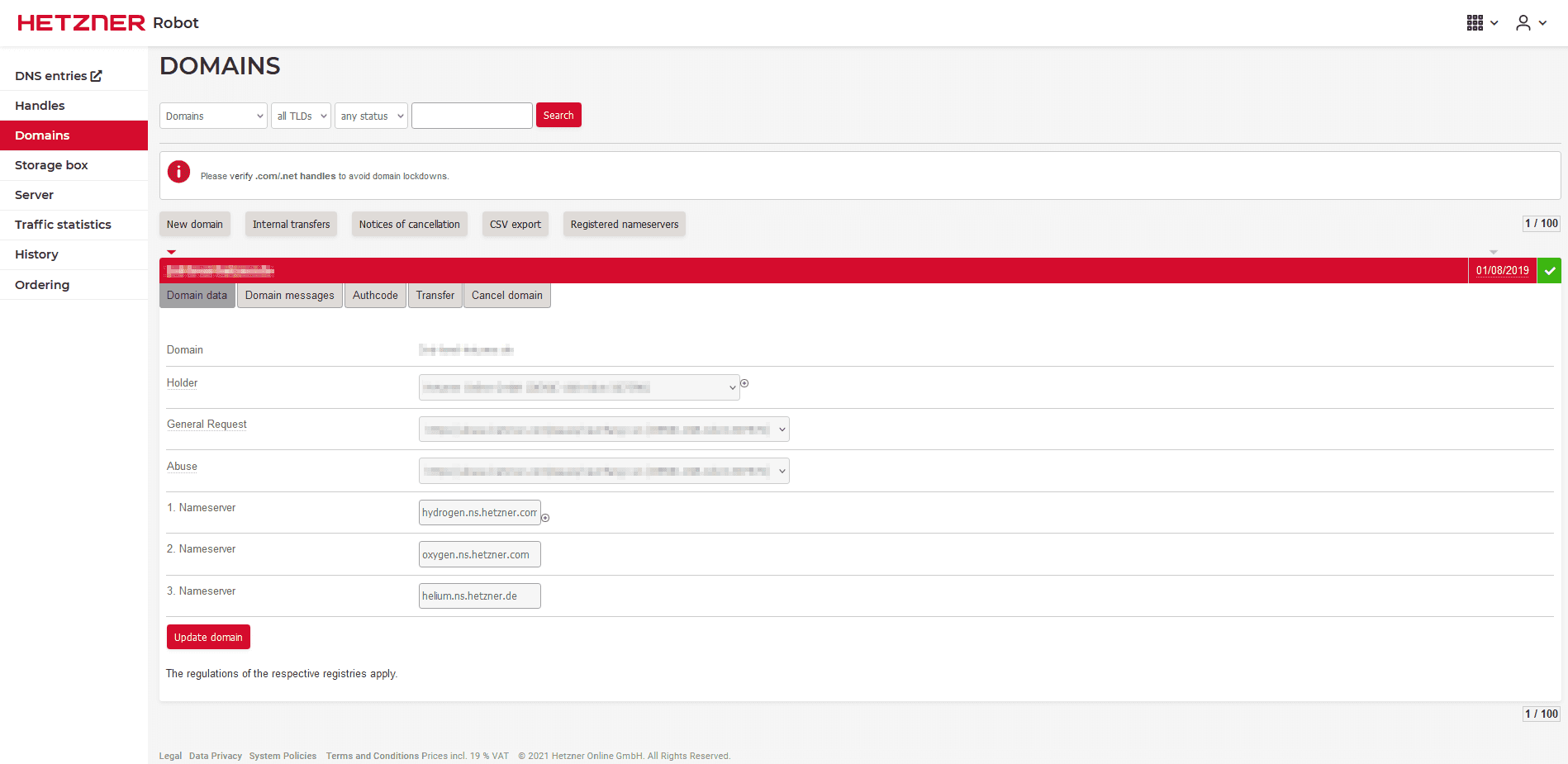
Hetzner Online utilizes the konsoleH administration interface, which stands out as a robust tool for managing managed servers. This interface allows users to create accounts, manage domains, email addresses, and websites efficiently. Though it may have more complexity compared to Bluehost’s AI-driven platform, konsoleH provides advanced functionalities that can handle more intricate tasks. The interface’s design may appeal more to users with some technical background, as it may appear less intuitive to complete beginners. Nonetheless, it offers comprehensive management capabilities for server and account configurations.
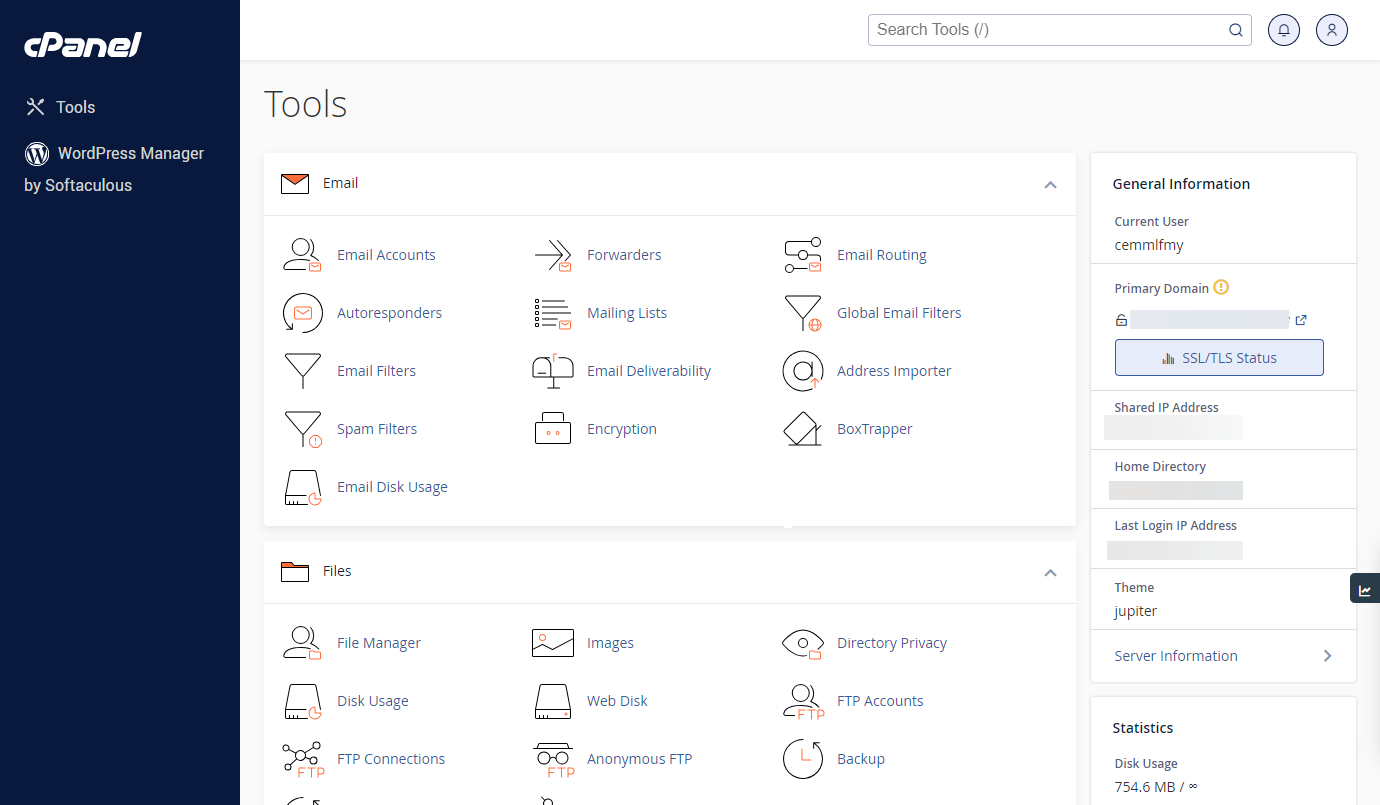
Both Bluehost and Hetzner provide tools for site migration, but the ease and automation of these tools differ. Bluehost offers resources and step-by-step guides specifically for WordPress migrations, making the process more accessible for users who are shifting from other hosting platforms. Their extensive documentation and support options facilitate a smoother transition. Hetzner, on the other hand, features detailed guides and tutorials on domain and website migration via its konsoleH interface. These resources ensure that users can perform migrations with a level of manual input, which might require a bit more effort compared to Bluehost’s automated approaches.
The platforms provide extensive knowledge bases filled with guides, how-to articles, and instructional content. Bluehost boasts a comprehensive knowledge base and 24/7 expert support for WordPress and other hosting issues. Its support channels include chat, phone, and email, ensuring that help is always available. The knowledge base features articles, guides, and troubleshooting tips to assist users in resolving issues quickly. Hetzner offers an extensive array of documentation, guides, and tutorials for server setup and migration needs, with 24/7 support via telephone and email. Their community contributions further enhance the help resources. Both platforms provide substantial help center resources, but Bluehost’s all-encompassing support and user-friendly resources give it an edge.
User management
accessibility.
Score Components:
- Role customization (40%): Flexibility in creating and defining user roles and
permissions. - Ease of management (30%): User interface and tools for managing users.
- Access control (20%): Effectiveness of access control measures for different user
levels. - Scalability (10%): Ability to manage a growing number of users efficiently.
 8.0
8.0
 7.8
7.8
🏆 Winner Bluehost: Bluehost excels in user management capabilities, offering a comprehensive and intuitive experience.
Both Bluehost and Hetzner provide structured user roles and permissions, but they cater to different aspects of user management. Bluehost offers a clear hierarchy with defined roles such as Primary Contact, Admin Contact, and Tech Contact. Each role has specific permissions, enabling fine-tuned control over account activities. Conversely, Hetzner focuses on group management, allowing the creation of groups with designated administrators and user quotas. While both platforms provide essential management functionalities, Bluehost’s dedicated roles approach offers a more streamlined and intuitive framework for managing permissions and accessibility effectively.
Bluehost’s user interface is designed for efficiency and ease of use. Users can manage roles through a straightforward Accounts & Users menu, making it simple to add, edit, or delete user roles. The process includes sending email invites for new users to set up their credentials. In comparison, Hetzner’s interface revolves around user and group settings, offering similar features but with an additional focus on storage quotas and activity monitoring. Hetzner provides more detailed customization for user information and login settings, potentially making it more suitable for technical users.
Access control measures on both platforms are sufficient for managing a growing number of users, but they differ in approach. Bluehost ensures access control through clearly defined roles and permissions tied to specific user activities, which helps in maintaining security as the number of users increases. Hetzner’s use of storage quotas and group management allows for more granular control over resource allocation and user activities, albeit with a slightly steeper learning curve. Overall, Bluehost’s hierarchical role management system may be more effective for non-technical users needing straightforward access control mechanisms.
Bluehost user roles table:
| Role | Description | Access highlights |
|---|---|---|
| Primary Contact | Main account holder, central communication point | Edit account/payment info, manage/add/delete user roles, purchase/renew products, and manage WHOIS information |
| Admin Contact | Manages settings and user permissions | Edit payment info, add/edit/delete user roles, purchase/renew products, and manage WHOIS Admin/Tech info |
| Tech Contact | Handles technical aspects of account management | Manage products/services, renew products, and edit WHOIS Admin/Tech information |
Hetzner user roles table:
| Role | Description | Access highlights |
|---|---|---|
| Group Admin | Administrator for specific user groups | Create/manage groups, define storage quotas, set additional user information |
| User | Regular user within the group | Access allocated storage, view and edit personal settings subject to quotas |
Customer support
hosting provider.
Score Components:
- Support communication channels (30%): Measures the variety of customer support types
provided (live chat, chatbot, email, phone, etc.) - Availability (20%): Assesses the availability hours for each channel, including 24/7
support options. - Technical support quality (30%): Assesses whether the provider offers comprehensive
technical support, including hardware upgrades (e.g., HDD to SSD), software installations, and web
server configuration changes. - Enterprise support (20%): Checks if there are dedicated or priority support services
for enterprise-level customers.
 7.9
7.9
 6.3
6.3
🏆 Winner Bluehost: A service that excels in providing versatile and accessible customer support.
 |
 |
|
|---|---|---|
Phone support |
||
Live chat support |
||
Chatbot |
||
Email/ticket support |
||
Enterprise support (dedicated agent, priority support) |

Bluehost offers extensive support options, including 24/7 live chat and phone support, which aren’t available with Hetzner. Bluehost also provides an extensive knowledge base and specific support for dedicated hosting, although customer feedback varies regarding its consistency and occasional upselling tactics. On the other hand, Hetzner utilizes a ticketing system and email support, but lacks a live chat option, which some users find limiting. Hetzner’s phone support is limited to Monday through Friday, and there are mixed reviews concerning the responsiveness and adequacy of their solutions, particularly involving account issues.
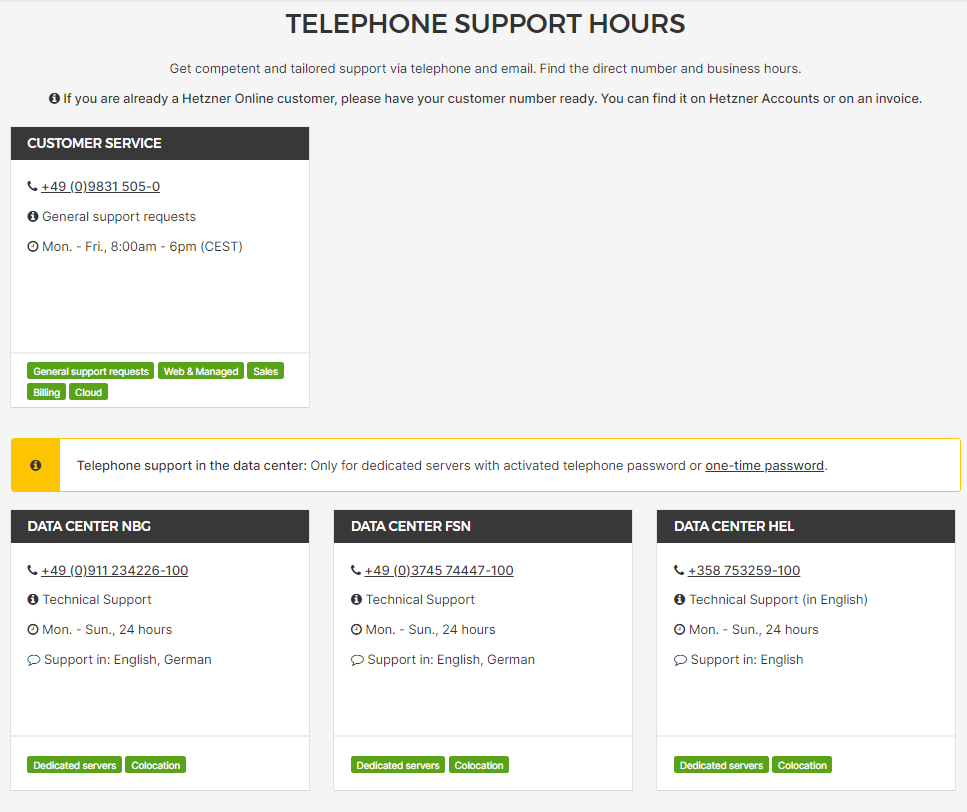
Hetzner does offer support in multiple languages, making it accessible to a more diverse customer base, while their detailed documentation helps with self-service. However, the absence of a money-back guarantee or free trial could be a downside for some users. In contrast, Bluehost’s 30-day money-back guarantee and promotional rates provide added incentives for new customers looking to test their services.
User feedback
User feedback on Bluehost as a hosting provider is highly mixed. On the positive side, many users commend their affordable pricing, ease of use with WordPress integration, and the comprehensive range of features such as free domain names, SSL, and excellent customer support. However, numerous reviews criticize the service for frequent outages, technical support issues, hidden fees, and unreliable performance, which have significantly impacted users’ businesses. Additionally, complaints about complicated navigation, aggressive upselling, and a steep learning curve for first-time users are common. While some users find Bluehost reliable and cost-effective, others have had severely negative experiences, citing problems like non-functional websites, billing issues, and inadequate customer service.
Users generally find the hosting provider to be cost-effective with robust performance capabilities, able to handle demanding tasks reliably. Many reviewers appreciate the competitive pricing, ease of use, and the fast, reliable infrastructure. While customer support is often praised for its availability and helpfulness, some users believe it could still see improvements. The platform’s dashboard and additional features could benefit from enhancements, but overall, users are satisfied with the value and quality of service provided.
FAQ
Which platform is better suited for hosting WordPress websites?
Bluehost is better suited for hosting WordPress websites as it offers specialized plans with automatic updates, a library of themes and plugins, and is recommended by WordPress.org. Hetzner, while powerful, does not offer WordPress-specific hosting plans, making Bluehost the preferable choice for WordPress users.
Are both platforms suitable for beginners?
Bluehost is highly accessible for beginners with its ease of use, AI tools, and guided setup processes. Hetzner, while powerful and cost-effective, has a more complex interface that might pose challenges for those without technical experience.
Which hosting service offers better security features?
Both platforms offer robust security features, but Hetzner stands out with its ISO 27001 certification, extensive PHP support, and multiple layers of DDoS protection. Bluehost also offers strong security measures, including free SSL certificates, daily backups, and malware scanning, but Hetzner’s advanced security infrastructure gives it an edge.
Which platform offers better customer support?
Bluehost offers more extensive customer support options, including 24/7 live chat and phone support, which are not available with Hetzner. Hetzner relies on a ticketing system and email support, with phone support limited to weekdays, making Bluehost the winner in terms of customer support accessibility.
Which hosting service offers more scalability options for growing websites?
Both Bluehost and Hetzner provide various scalability options, but the approaches differ. Bluehost offers seamless upgrades from shared to VPS or dedicated hosting and managed cloud hosting for high-traffic sites. Hetzner provides shared and dedicated vCPU options with scalable cloud hosting, but the process may require more manual input.
How do the providers handle email hosting and what features are included?
Bluehost offers professional email hosting through Google Workspace with purchase, whereas Hetzner provides an in-house solution with features like SMTP with SSL encryption, email synchronization protocols, autoresponder, and higher mailbox limits. Hetzner’s extensive email features make it ideal for demanding email needs.
The making of this blog
We followed a clear, step-by-step process to write and research this article.









